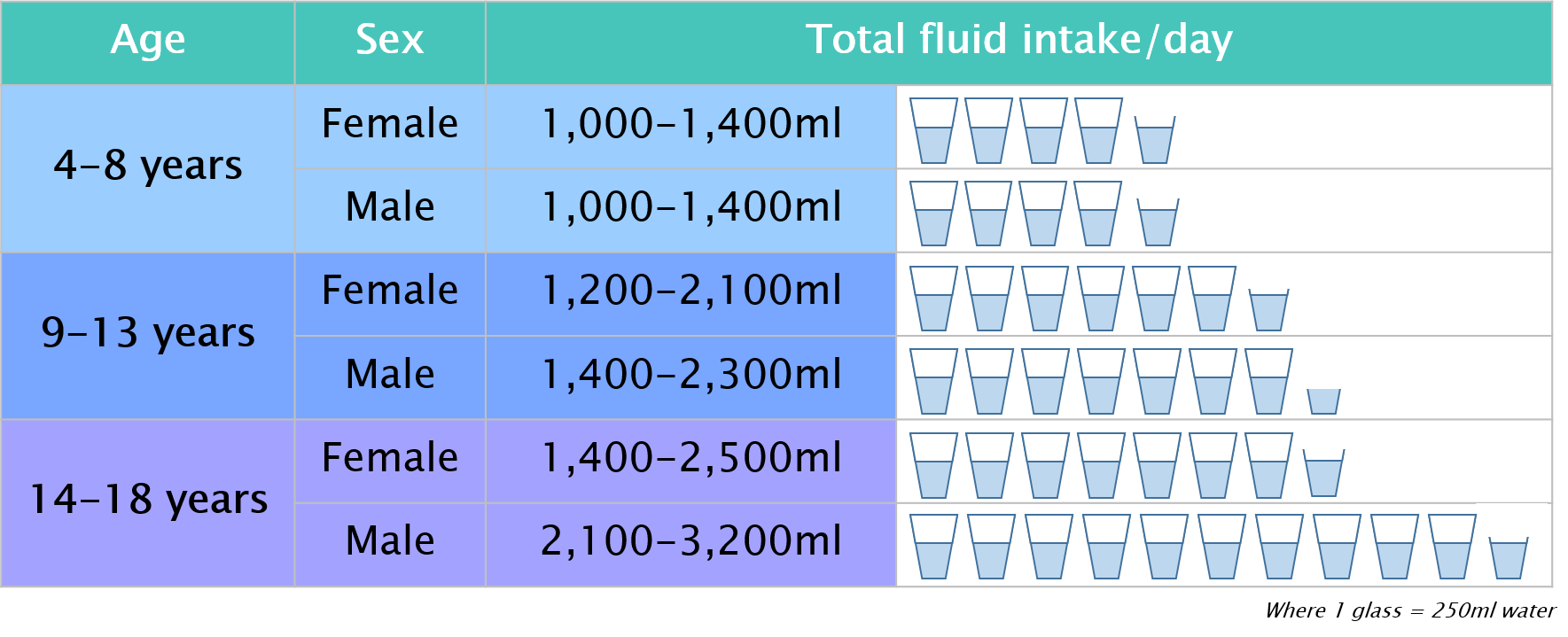Should I restrict how much my child drinks?
Parents often think that they should restrict the amount that their child drinks if they are bedwetting. However, it is important not to restrict your child’s fluid intake if they are regularly wetting their bed. If you limit your child’s fluid intake, your child’s bladder will adjust to holding less fluid. This means that your child will need to empty their bladder more regularly.
How much should my child drink?
What should my child drink?
The best drink is water, but squashes and diluted fruit juices are also fine.
Caffeine-based drinks (tea, coffee, cola, chocolate) should be avoided, however. Caffeine is a diuretic and increases the amount of urine produced by the kidneys. Fizzy drinks should also be avoided as these can irritate the bladder.
If you think that a particular drink might be making your child’s bedwetting worse, try removing it from your child’s diet for a couple of weeks. If you don’t notice a positive change to your child’s bedwetting habits, then you can reintroduce the drink.
When should my child drink?
Your child should be encouraged to drink regularly throughout the day. An hour and a half before going to bed, only mouthfuls rather than full glasses should be drunk to relieve thirst.
This should also encourage your child to use the toilet regularly throughout the day (4-7 times on average) as well as just before going to bed.
Conclusion
So, your child’s fluid intake should not be restricted. Instead, it is important that your child drinks fluids (preferably water) regularly throughout the day. The encouragement of regular daytime drinking and toileting habits will help your child in the process to becoming dry at night. 
[1] Nocturnal enuresis: the management of bedwetting in children and young people. NICE clinical guideline 111 (2010).

